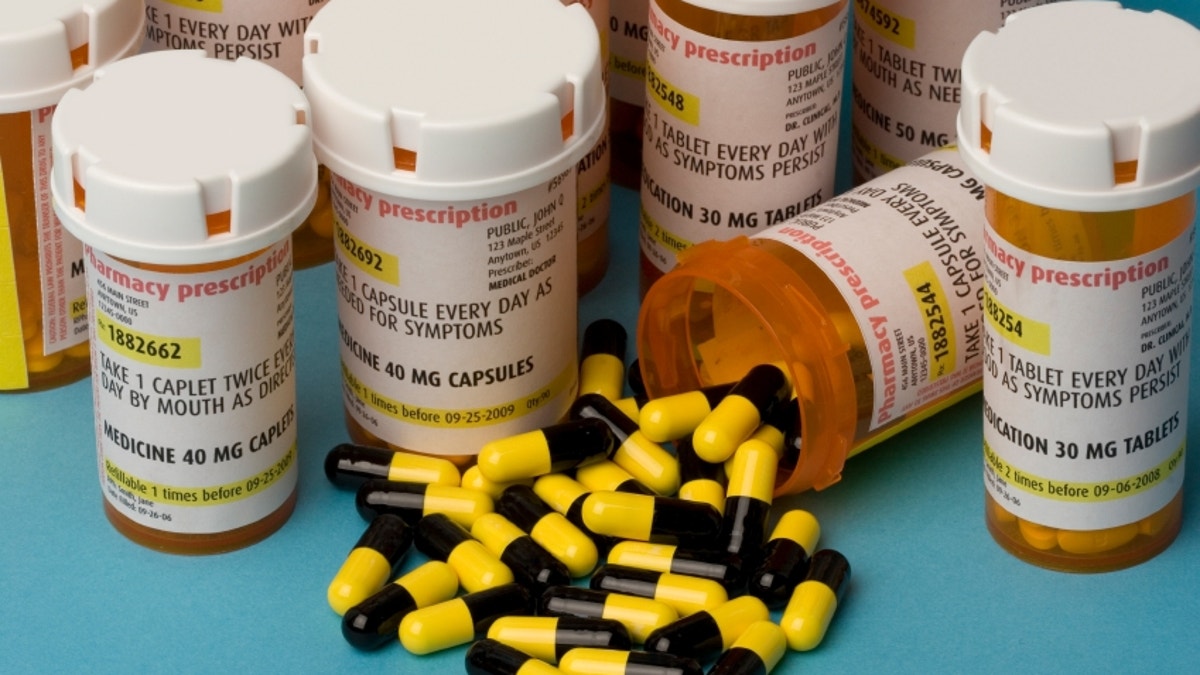
Bottles of prescription medication. Labels are fake, with false information.
People accustomed to nagging from doctors and family members that they're not taking their medications properly may get some help from an unlikely source. New designs for drug packages and plans for labels that are easier to understand aim to help people stick to their drug regimens.
New technologies include a bottle cap with a wireless chip that signals to patients if they are late in taking their medicine by triggering flashing lights and audible alerts.
Recent research has found that packaging pills in blister packs, rather than typical amber-colored vials, may be more likely to get patients to take their pills. Blister packs, in which each pill is enclosed in its own compartment marked with the day of the week, help remind people if they're up-to-date with their medications.
Meanwhile, the jumble of consumer information that accompanies medications—which may include a bottle label, an information sheet stapled to the bag, a package insert from the drug manufacturer and another insert sometimes required by the U.S. Food and Drug Administration—makes it harder for patients to follow instructions.
"The redundancy ultimately causes more confusion and may result in patients altogether avoiding all the material they receive," says Michael Wolf, associate professor of medicine at Northwestern University's Feinberg School of Medicine.
An FDA spokeswoman said the agency is working to consolidate all the information that consumers receive with prescription medicines into one document.
Patients who don't take their medications as directed increase their health risk, especially in the case of chronic conditions such as diabetes and hypertension. A 2010 report from the New England Healthcare Institute, a research organization, found that one-third to one-half of U.S. patients on medication for chronic illnesses don't adhere to their drug regimen.







































